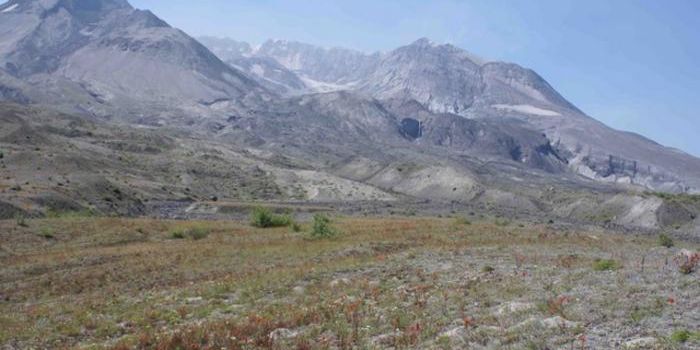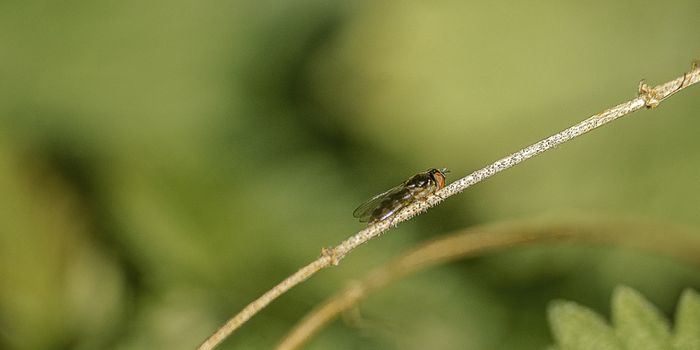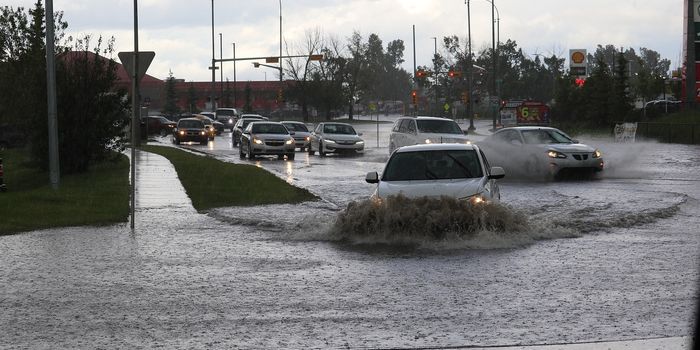Can Kelp Help Reduce Acidification in the Ocean?
Our oceans are becoming more acidic; their pH is going down as they absorb more and more carbon dioxide from Earth's atmosphere. It's thought that this acidity is negatively affecting marine life, and it's only getting worse. Kelp forests are thick fronds of brown algae known as heterokonts that grow together in the ocean and provide a home for a variety of creatures, and have been proposed as a way to reduce acidity in the oceans.
Reporting in JGR Oceans, researchers have analyzed a forest of giant kelp off the coast of California in Monterey Bay to learn more about whether these aquatic organisms can mitigate the impacts of increasing carbon dioxide absorption.
"We talk about kelp forests protecting the coastal environment from ocean acidification, but under what circumstances is that true and to what extent?" asked lead study author Heidi Hirsh, a graduate student at Stanford's School of Earth, Energy & Environmental Sciences (Stanford Earth). "These kinds of questions are important to investigate before trying to implement this as an ocean acidification mitigation strategy."
In the study, scientists determined that close to the surface of the water, the pH was a bit less acidic; it was slightly higher, suggesting that the kelp may have been exerting an acidity-reducing effect. But they did not see the same result near the floor of the ocean where many sensitive species reside and acidification is most intense.
"One of the main takeaways for me is the limitation of the potential benefits from kelp productivity," said Hirsh.
Kelp is a foundation species in California; it provides support to many other species and helps create a stable ecosystem. Kelp forests grow along the rocky coastlines of California, down to the Baja peninsula, and through Canada up to Alaska. They prefer clear, cool water that is rich in nutrients. Carbon levels, which are rising dramatically in our atmosphere, can create an imbalance when absorbed by the oceans that is detrimental to marine ecosystems.
Kelp was considered as a solution to this imbalance. It grows rapidly and undergoes photosynthesis, which takes carbon dioxide out of the water and puts oxygen back in. Giant Kelp in Monterey Bay is also affected by the seasonal upwelling of nutrient-rich and acidic water from the Pacific floor towards the surface.
"It's this very complicated story of disentangling where the benefit is coming from - if there is a benefit - and assessing it on a site-by-site basis, because the conditions that we observe in southern Monterey Bay may not apply to other kelp forests," Hirsh said.
At a marine lab in Pacific Grove, California, the researchers studied a 300-foot wide kelp forest, taking samples and making observations. They found that the kelp forest did not seem to be helping sensitive creatures living near the seafloor, but the acidity levels were lower in the kelp forest, suggesting that they could present one option for mitigating acidity.
The researchers checked the levels of oxygen and salts in the water along with its pH and temperature to look for patterns in the biochemistry of the forest. They were surprised to find that the water was becoming less acidic at night.
"It was wild to see the pH climb during the night when we were expecting increased acidity as a function of kelp respiration," Hirsh said. "That was an early indicator of how important the physical environment was for driving the local biogeochemical signal."
The researchers hope to eventually learn more about whether we could actually sequester carbon underwater.
"One of the reasons for doing this is to enable the design of kelp forests that might be considered as a blue carbon option," said co-author Stephen Monismith, the Obayashi Professor in the School of Engineering. "Understanding exactly how kelp works mechanistically and quantitatively is really important."
Sources: AAAS/Eurekalert! via Stanford University, JGR Oceans









